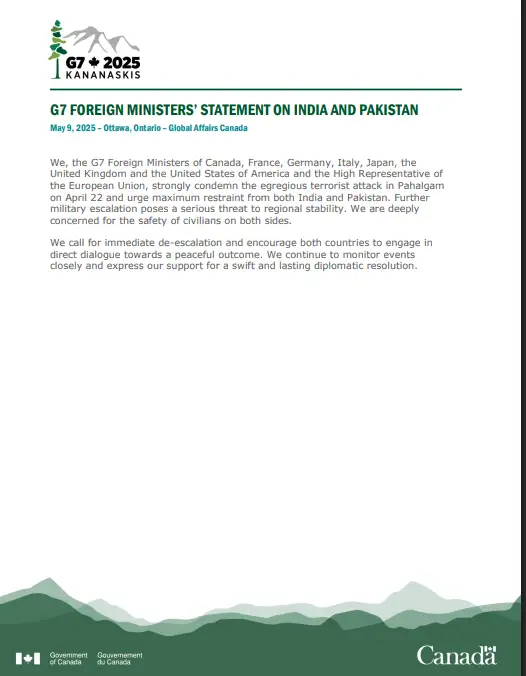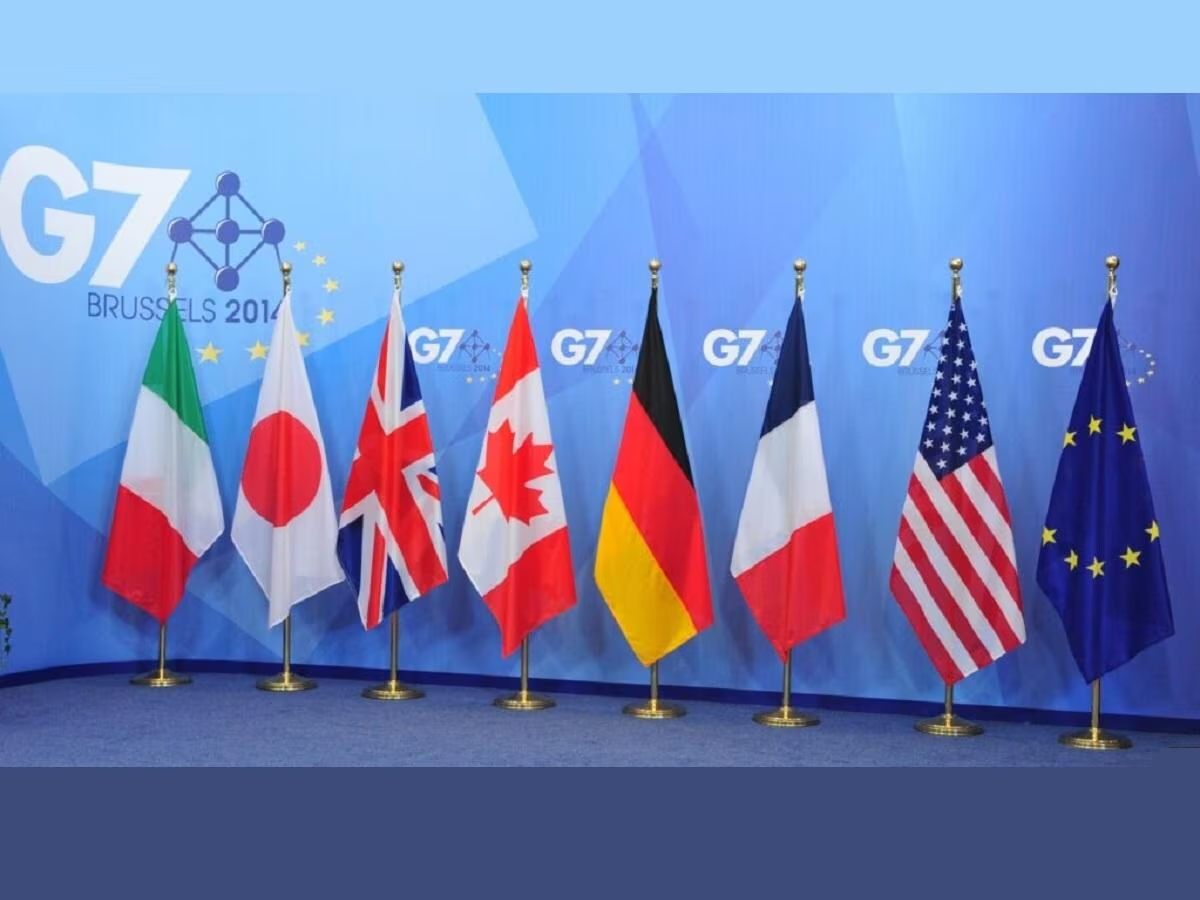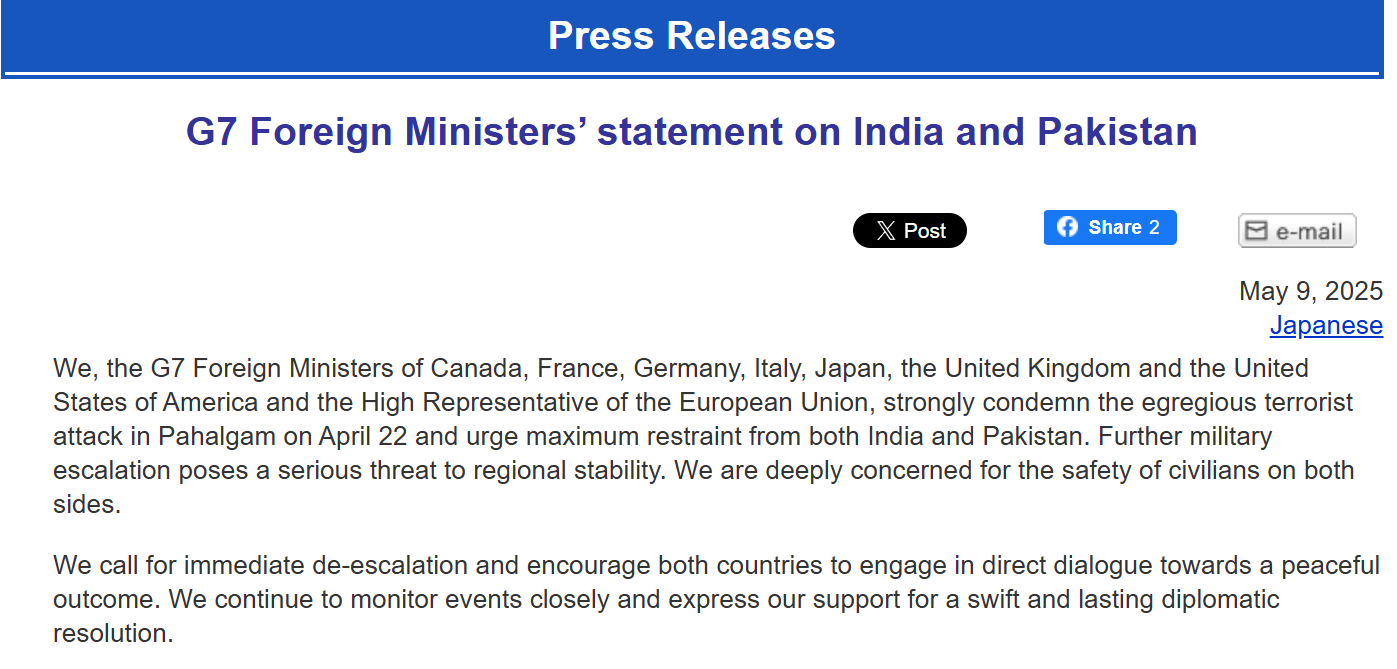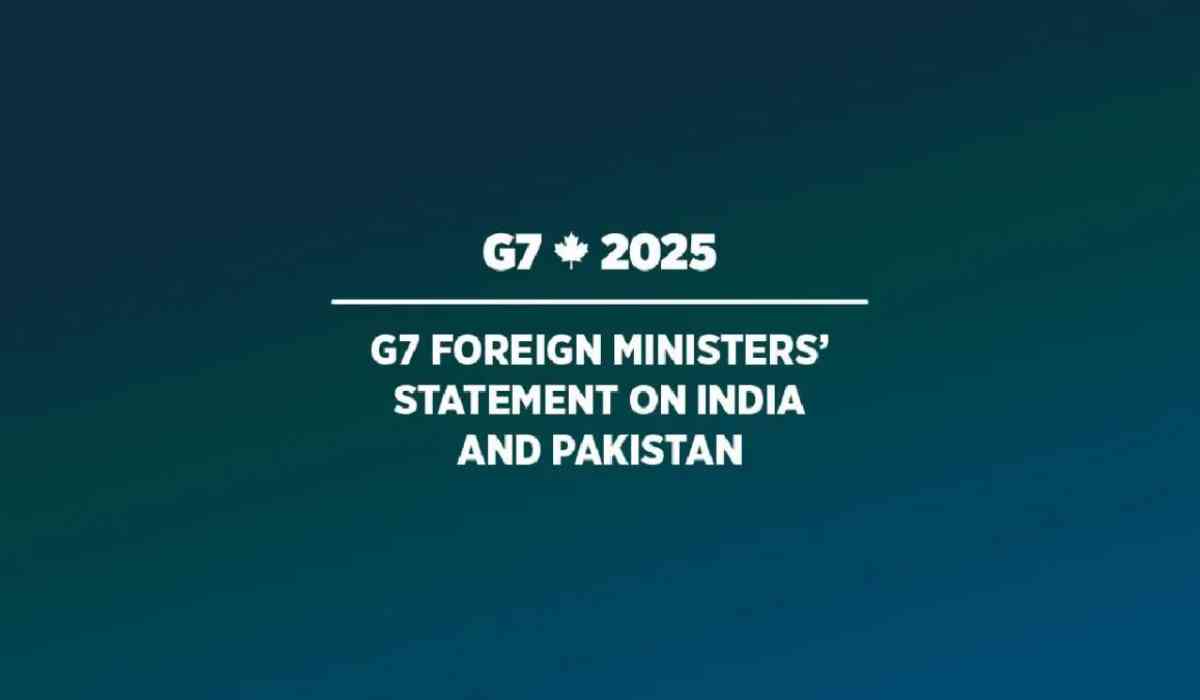The recent terror attack in Pahalgam, Jammu and Kashmir, has drawn strong international condemnation, with the Group of Seven (G7) nations and Singapore expressing deep concern over escalating tensions between nuclear-armed neighbors India and Pakistan. As fears of a broader conflict mount, global voices are urging both countries to exercise maximum restraint and pursue diplomatic dialogue.

G7 Strongly Condemns the Pahalgam Attack
In a unified statement released on May 9, the Foreign Ministers of the G7—comprising Canada, France, Germany, Italy, Japan, the United Kingdom, the United States of America—and the High Representative of the European Union, unequivocally condemned the April 22 terrorist attack in Pahalgam that killed 26 civilians in Baisaran Valley.
“We, the G7 Foreign Ministers... strongly condemn the egregious terrorist attack in Pahalgam on April 22 and urge maximum restraint from both India and Pakistan,” the official press release stated.
The G7's condemnation was followed by a broader appeal for peace and stability in the region. The group highlighted the threat that further military escalation poses to regional and global security, emphasizing the urgent need for both nations to step back from the brink of conflict.
#G7 Foreign Ministers' statement on India and Pakistan.#G7Canada pic.twitter.com/C08SLgwQpl— G7 (@G7) May 9, 2025
Urging Dialogue and Diplomatic Resolution
The G7 statement stressed the importance of immediate de-escalation and reiterated the call for both India and Pakistan to engage in direct dialogue as a path toward a peaceful resolution. The ministers expressed their support for a “swift and lasting diplomatic resolution,” underscoring the significance of maintaining civilian safety on both sides of the border.
“Further military escalation poses a serious threat to regional stability. We are deeply concerned for the safety of civilians on both sides,” the G7 warned.
The international community continues to monitor developments closely, hoping for a reduction in hostilities and a return to diplomatic engagement.

Rising India-Pakistan Tensions: A Military Snapshot
Despite calls for peace, tensions between India and Pakistan have sharply escalated in the days following the Pahalgam attack. A series of retaliatory military actions and cross-border engagements have intensified the crisis.
Key Developments:
-
May 7 Onward: Pakistan initiated a series of aerial strikes, prompting India to retaliate with precision attacks, including the neutralization of Pakistan’s Lahore Air Defence System.
-
May 8–9: Multiple drone and missile strikes were exchanged across the Line of Control (LoC) and International Border (IB). Indian forces successfully intercepted and neutralized Pakistani strikes aimed at key military installations in Jammu and Pathankot.
-
Infiltration Attempts: The Border Security Force (BSF) foiled a major infiltration attempt by suspected terrorists in Samba, Jammu and Kashmir.
-
Heavy Shelling: Pakistan intensified aggression with artillery shelling in sensitive regions including Poonch, Rajouri, Uri, and Chowkibal Kupwara in the early hours of May 9.
The situation has escalated to one of the most intense periods of hostility in recent years, drawing increasing international concern.

Singapore's Reaction: Gravely Concerned
Alongside the G7, Singapore has also voiced grave concerns over the growing military confrontation between India and Pakistan. In a statement issued by its Ministry of Foreign Affairs (MFA) on May 9, Singapore condemned the Pahalgam attack and urged both parties to de-escalate tensions.
“Singapore is gravely concerned about the ongoing military confrontation between India and Pakistan following the heinous terror attack in Pahalgam, Jammu and Kashmir, on April 22,” the statement read.
Singapore called on both countries to resolve issues through diplomatic means and emphasized the importance of protecting civilian lives.
Travel Advisory:
-
On May 7, Singapore advised its citizens to defer all non-essential travel to both Jammu and Kashmir in India and to Pakistan.
-
Citizens currently in either country were urged to remain vigilant and take necessary precautions for personal safety, particularly in border regions.
As the situation teeters on the edge of a potential full-scale conflict, the international community is urging both India and Pakistan to prioritize dialogue over aggression. The Pahalgam terror attack has not only reignited old hostilities but also drawn urgent global attention to the fragile stability of South Asia.
With inputs from agencies
Image Source: Multiple agencies
© Copyright 2025. All Rights Reserved Powered by Vygr Media.

















